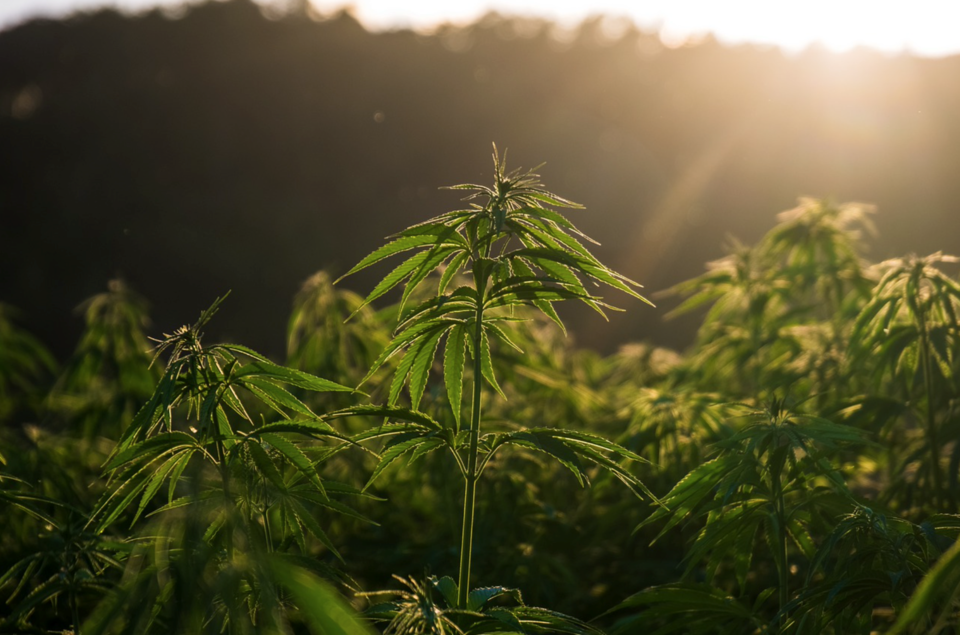A Colorado Senate Bill that was signed into law on May 31 could place regulations on the state’s hemp industry for the first time, starting as soon as Jan. 1, 2023.
While hemp and marijuana are both derivatives of cannabis plants, they differ in the amounts of tetrahydrocannabinol, or THC, they contain. Historically, they’ve also differed in the way they’ve been viewed in the eyes of Colorado law.
Since recreational marijuana was legalized in Colorado in 2014, the Marijuana Enforcement Division has been responsible for overseeing the commercial marijuana industry within the state, as well as ensuring that its products are safe for consumption and that they’re sold by licensed retailers to individuals aged 21 and over.
Meanwhile, the regulatory structures surrounding Colorado’s marijuana industry haven’t yet translated over to hemp products. The gap in legislation has served as a green light for hemp companies to sell their products without regulation and, more concerningly, without the knowledge of whether their products are safe for consumption, according to Colorado Representative Alex Valdez.
“It’s not fair and it’s not good that another product in the same family of plant (as marijuana) is completely unregulated,” Valdez said. “It’s a health and safety issue, and we really want to ensure that things being consumed by Coloradans are safe.”
This spring, Valdez made his concerns known by sponsoring Senate Bill 22-205, which proposed “the regulation of cannabis-related products that may potentially cause a person to become intoxicated when used,” the Colorado General Assembly website states. Specifically, the bill looked at regulation for products with hemp and THC modified cannabinoids, or CBD.
After the first version of the bill received “a lot of push back for jumping right into a regulatory structure,” according to Valdez, the General Assembly determined that it was necessary to undergo stakeholdering – or a process of making amendments to the bill based on input from the communities it would affect.
The stakeholdering process of Senate Bill 22-205 garnered attention from businesses and organizations in the hemp, marijuana and CBD industries across the country.
CEO of CBDistillery – a nationwide company whose mission is to “be the premier resource for CBD products and education” – Chase Terwillinger went into the stakeholdering process knowing that what Senate Bill 22-205 proposed, “may be a little detrimental to our business from a revenue and profitability standpoint, but good for the entire industry in general,” he said.
“(The bill) is putting in the right regulations, it’s dividing the line between what should only be sold in dispensaries and what shouldn’t … And that’s why we’re supporting it,” Terwillinger said.
The final revised and signed Senate Bill 22-205 addresses three main objectives.
The bill grants the Colorado Department of Public Health and Environment the immediate authority to “promulgate rules to prohibit … the chemical modification, conversion, or synthetic derivation of intoxicating (THC) isomers … that originate from industrial hemp or may be synthetically derived,” the bill text states.
Instead of setting regulations into motion, the bill will create a task force consisting of government officials and hemp and marijuana industry representatives, who will be responsible for studying the intoxicating effects of hemp products and using their findings to recommend legislation and rules for the distribution of such products in Colorado. The task force will go into effect on Sept. 1, and its members will have until Jan. 1, 2023 to report back to the General Assembly, who will decide whether to enact the suggested regulations.
Finally, the bill will appropriate $587,347 to the Colorado Attorney General, who intends to use the money to “crack down on deceptive trade practices and other consumer protection issues regarding hemp products,” as the United States Hemp Roundtable put it in a press release about the bill.



